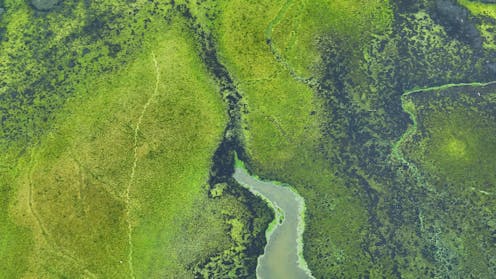
Pollution causes more illness and early death than any other environmental threat, accounting for one in six deaths worldwide. For decades, the US Environmental Protection Agency’s (EPA) Office of Research and Development (ORD) has driven many of the biggest advances for safeguarding human health and ecosystems from chemicals. Now, this scientific research office is being closed down by the US government
Earlier this year, the Trump administration began dismantling the office by terminating programmes, cutting staff, closing laboratories and moving remaining scientists into regulatory offices. Legal challenges temporarily blocked mass government layoffs.
But that changed when a recent Supreme Court ruling gave the Trump administration the green light to proceed with widespread redundancies and the total elimination of ORD.
Get your news from actual experts, straight to your inbox. Sign up to our daily newsletter to receive all The Conversation UK’s latest coverage of news and research, from politics and business to the arts and sciences.
Now, in so doing, the US is not just gutting its own scientific foundation. It’s also putting decades of global progress in chemical safety, pollution control and public health at risk.
ORD is the EPA’s independent science arm, conducting research that supports clean air, water and land. From detecting pollutants and assessing health risks to guiding environmental cleanup, it ensures EPA decisions are grounded in credible, evidence-based research. ORD develops this science under intense scientific, policy, political and legal scrutiny, which means it produces the best available science that is credible and robust.
ORD doesn’t just study pollution, it uncovers threats before they become crises. Take North Carolina’s Cape Fear River, which supplies drinking water to an estimated 2 million people.
While most scientists focused on known pollutants, ORD used advanced screening tools to detect GenX, a little-known synthetic “forever chemical”. Despite evidence that GenX was contaminating the river basin since the 1980s, not much was known about its potential to harm living systems.

ORD rapidly filled this void, linking GenX to decreased birth weight and increased mortality in newborn rats, prompting swift regulatory action against the manufacturer to ensure cleaner, safer water for local communities. No other government agency in the world delivers this kind of rapid, science-led response.
It’s not just the strength of ORD’s science that sets it apart, but also its visionary thinking. Among ORD’s most influential ideas is a model that maps out how a chemical is causing harm.
This works like a chain of building blocks, linking tiny effects (like a chemical disrupting a hormone) to much bigger problems, such as cancer or even extinction. Each step shows how one change leads to another until it reaches something we truly care about. This approach helps scientists detect danger early, before it leads to irreversible damage.
Then there’s the EPA’s groundbreaking work in computational toxicology. Nearly two decades ago, leading scientists warned that chemical safety testing relied too heavily on outdated methods and animal experiments.
In response, ORD built ToxCast, a system that uses tiny cells and computer models to screen thousands of chemicals for effects like endocrine disruption or cell damage. It’s faster, cheaper and more humane, and helps scientists predict which substances may pose serious risks.
These scientific breakthroughs don’t come from policy offices. They require researchers with the independence to explore and innovate.
Beyond the US
Europe has bold goals to phase out animal testing. Much of the science driving this shift comes from ORD.
Tools like Ecotox (the world’s largest chemical toxicity database) and the CompTox dashboard (a platform that links predictive models and non-animal test data for over a million substances) are widely used across the EU and UK. Without ORD, these vital resources, hosted by EPA, could disappear, stalling global progress toward safer, more ethical chemical testing.
EPA also collaborates closely with European partners. It maintains formal agreements and joint programmes with the European Chemicals Agency and the UK’s Department for Environment, Food and Rural Affairs. Areas of focus include air quality, computational toxicology and chemical risk assessment.
ORD has been a leading scientific institution with global reach. Its tools and ideas have shaped how governments detect hazardous chemicals, understand their effects, and protect people and the planet. From toxicity databases to modern, non-animal testing methods, ORD has underpinned how we respond to pollution. Eliminating it could create a dangerous void, just as chemical and climate threats are accelerating.
Don’t have time to read about climate change as much as you’d like?
Get a weekly roundup in your inbox instead. Every Wednesday, The Conversation’s environment editor writes Imagine, a short email that goes a little deeper into just one climate issue. Join the 45,000+ readers who’ve subscribed so far.
Scott Glaberman previously worked at the US EPA.
North Carolina State University receives funding from the California Air Resources Board for a research project for which Dr. Frey is a co-principal investigator. H. Christopher Frey served from 2022 to 2024 as Assistant Administrator for the Office of Research and Development, and as Science Advisor, at the U.S. Environmental Protection Agency.
Tamara Tal previously worked at the US EPA in the Office of Research and Development.
This article was originally published on The Conversation. Read the original article.







